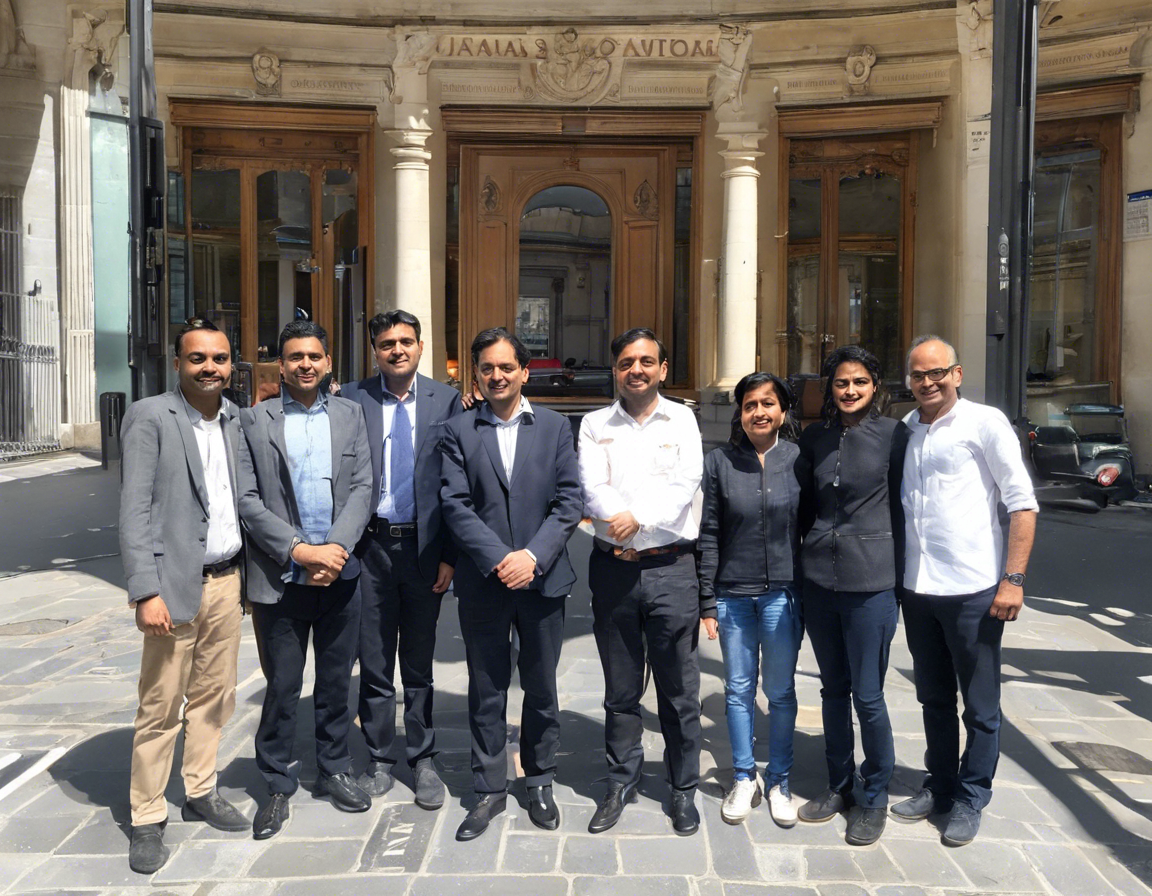Introduction
In recent years, educational institutions and government bodies have been emphasizing the importance of exposure trips for officers to enhance their understanding and knowledge of different cultures, governance systems, and best practices. One of the most sought-after destinations for such trips is Paris, France. The City of Light not only boasts an exquisite blend of history, art, and culture but also serves as a hub for global diplomacy and governance. In this article, we will delve into the intricacies of Paris trips for top IAS officers and the unique experiences they encounter during their visits.
Why Paris is a Top Choice for IAS Officers
Paris stands out as an ideal destination for IAS officers due to various reasons:
1. Cultural Richness: Paris is renowned for its cultural heritage, including iconic landmarks like the Eiffel Tower, Louvre Museum, Notre Dame Cathedral, and Champs-Élysées. These sites offer unparalleled insights into art, history, and architecture.
2. Governance Insights: As the capital of France, Paris provides an excellent opportunity for IAS officers to explore the French governance model, administrative practices, and policy frameworks. They can engage in knowledge-sharing sessions with their counterparts and learn about best practices in public administration.
3. International Exposure: Paris serves as a global melting pot, attracting visitors and dignitaries from around the world. IAS officers can interact with diplomats, attend international conferences, and broaden their perspectives on global issues.
Key Highlights of the Paris Trip
During their Paris trip, top IAS officers typically engage in a diverse range of activities that enrich their professional acumen and personal growth. Some of the key highlights include:
1. Visits to Government Institutions: IAS officers often visit key government institutions in Paris, such as the French Ministry of Foreign Affairs, National Assembly, and OECD. These visits provide insights into the functioning of the French government and foster bilateral cooperation.
2. Cultural Immersion: IAS officers explore the cultural vibrancy of Paris through visits to museums, art galleries, theaters, and historical monuments. They immerse themselves in French art, cuisine, music, and fashion, gaining a deeper appreciation for the country’s rich heritage.
3. Policy Discussions: IAS officers participate in roundtable discussions, seminars, and workshops on various policy issues, ranging from sustainable development to urban planning. They exchange ideas with French experts and policymakers, fostering cross-cultural learning and collaboration.
4. Networking Opportunities: The Paris trip offers ample networking opportunities for IAS officers to connect with professionals from diverse backgrounds. They build relationships, share experiences, and lay the groundwork for potential partnerships in the future.
5. Leadership Training: IAS officers may undergo leadership training programs in Paris, focusing on strategic planning, crisis management, conflict resolution, and decision-making. These programs equip them with essential skills to navigate complex governance challenges effectively.
Frequently Asked Questions (FAQs)
1. What are the benefits of IAS officers participating in Paris trips?
– Paris trips offer IAS officers a unique opportunity to gain insights into French governance practices, cultural richness, and international relations. They broaden their horizons, enhance their knowledge base, and foster cross-cultural understanding.
2. How are IAS officers selected for Paris trips?
– IAS officers are typically selected based on their performance, expertise, and relevance to the trip’s objectives. Senior officials may nominate eligible officers for participation, considering factors such as professional development needs and potential contributions to the delegation.
3. What are the key learnings from a Paris trip for IAS officers?
– IAS officers learn about the French governance system, administrative reforms, policy priorities, and cultural nuances during their Paris trip. They also gain exposure to international best practices, innovative solutions, and diplomatic engagements that can inform their decision-making processes back home.
4. How do Paris trips contribute to the professional development of IAS officers?
– Paris trips contribute significantly to the professional development of IAS officers by offering experiential learning opportunities, networking avenues, leadership training, and exposure to diverse perspectives. Officers return with enhanced skills, broader perspectives, and renewed motivation to serve society more effectively.
5. How do Paris trips align with the broader objectives of the Indian civil services?
– Paris trips align with the broader objectives of the Indian civil services by promoting learning, collaboration, innovation, and global engagement. They enable officers to benchmark against international standards, leverage best practices, and contribute to policy formulation and implementation in a dynamic and evolving global landscape.
In conclusion, Paris trips for top IAS officers represent a symbiotic blend of professional development, cultural exploration, policy dialogue, and international collaboration. These immersive experiences not only enrich the participants’ knowledge base and skill set but also enhance their global perspective and diplomatic acumen, enabling them to make more informed decisions and drive positive change in the Indian administrative landscape.
